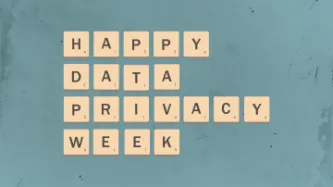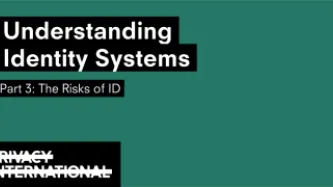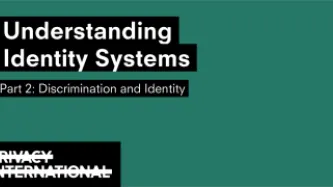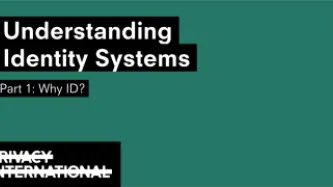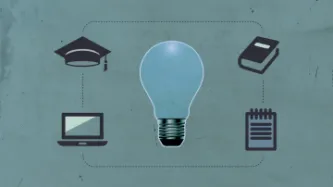Advanced Search
Content Type: Examples
Affiliate marketers, who buy ad space in bulk, run campaigns, and earn commissions on the sales they generate, are behind some of the shady and misleading ads that pollute social media and the wider internet, despite also promoting some legitimate businesses such as Amazon and eBay. At one of several yearly conferences, a Berlin event sponsored by Stack That Money, included representatives from Facebook, "Your Computer May Be Infected", "You Won an iPhone", a Russian promoter of black mask face…
Content Type: Examples
By the time T-Mobile announced in August 2018 that a data breach had compromised customers' names, billing zip codes, email addresses, account numbers, account types, phone numbers, and some hashed passwords, the most crucial of these had become phone numbers. Never intended as identifiers, phone numbers have become tools for authentication and therefore long-term "skeleton keys" to individuals' lives. Techniques such as SIM-swapping allow attackers to intercept SMS messages. Credit card…
Content Type: Examples
In 2017, Alphabet's Sidewalk Labs began a collaboration with Waterfront Toronto intended to turn a 12-acre lakeside area into a "smart city" equipped with sensors and responsive infrastructure. Frustration that Torontonians' data privacy concerns were not being addressed led Saadia Muzaffar, founder of TechGirls Canada, to resign from Waterfront Toronto's Digital Strategy Advisory Panel in October 2018. In a lengthy resignation letter, she called attention to the risk that embedding poorly…
Content Type: Examples
In October 2018, researcher Johannes Eichstaedt led a project to study how the words people use on social media reflect their underlying psychological state. Working with 1,200 patients at a Philadelphia emergency department, 114 of whom had a depression diagnosis, Eichstaedt's group studied their EMRs and up to seven years of their Facebook posts. Matching every person with a depressive diagnosis with five who did not, to mimic the distribution of depression in the population at large, from…
Content Type: Examples
In 2018, WhatsApp founder Brian Acton responded to the Cambridge Analytica scandal by tweeting "It is time. #deletefacebook." He also left the company, walking away from $850 million in unvested stock rather than accede to Facebook's plans to add advertising and commercial messaging, a purpose at odds with WhatsApp's encrypted environment. In 2014, Acton and his co-founder Jan Koum, sold WhatsApp to Facebook for $22 billion. Acton's wanted instead to monetise WhatsApp by charging users tiny…
Content Type: Examples
After a series of scandals, in the year up to September 2018 54% of American Facebook users had changed their privacy settings and 42% had skipped visiting the platform for several weeks or more. About 26% said they had deleted the Facebook app from their smartphone. Some 74% of Facebook users had taken at least one of these three actions, split evenly across Democrats and Republicans. Across age groups, younger users (18 to 29) were more likely to have deleted the app (44%), and only a third…
Content Type: Examples
Even after 2015, when Facebook said it had walled off user records from third parties, inside sources and court documents showed that the company went on maintaining a whitelist of companies that were allowed customised access to information about users' Friends, phone numbers, and a "friend link" metric that measured the degrees of separation. Whitelisted companies included Nissan and Royal Bank of Canada, and others that either advertised on the network or were valuable to Facebook for other…
Content Type: Examples
In July 2018, Facebook announced it was investigating whether the Boston-based company Crimson Hexagon had violated the company's policies on surveillance. Crimson Hexagon markets itself as offering "consumer insights". Its customers include a Russian non-profit with ties to the Kremlin, and multiple US government agencies. After pressure from civil liberties groups, Facebook put a policy in place in March 2017 barring the use of members' data for the purposes of government surveillance.…
Content Type: Examples
In May 2018 Facebook announced it would partner with organisations in places such as Myanmar and South Sudan in order to develop more "context-specific" knowledge about how its platform is being abused to create real risks of harm and violence. In Myanmar, where telephone companies allowed Facebook to offer free access, the number of users rose in tandem with the amount of online hate speech, most of it directed against the country's Muslim minority. Facebook wound up withdrawing its Free…
Content Type: Examples
In May 2018, Facebook said that as part of its investigation into how Cambridge Analytica had abused personal data on the social network, it had investigated thousands of apps on its platform and suspended about 200 of them. The company said it was investigating further to identify every app that may have misused users' personal data before the site's policy changed in 2014. Facebook said it would ban any further apps it found and notify users through a dedicated web page. Among those suspended…
Content Type: Examples
In 2018, economists Marianne Bertrand and Emir Kamenica at the University of Chicago Booth School of Business showed that national divisions are so entrenched that details of what Americans buy, do, and watch can be used to predict, sometimes with more than 90% accuracy, their politics, race, income, education, and gender. In a paper published by the National Bureau of Economic Research, the economists taught machine algorithms to detect patterns in decades of responses to three long-running…
Content Type: Examples
In 2018, experiments showed that despite the company's denials, ads could be targeted at specific Facebook users via information that the users had never given Facebook, such as phone numbers.
The reason: Facebook allows advertisers to upload their own lists of phone numbers of email addresses, and the service will use them to put ads in front of users associated with those details. The company also uses information supplied for security purposes, including phone numbers provided for two-…
Content Type: Examples
In June 2018 Facebook announced it would install new controls to improve members' understanding of how companies targeted them with advertising, including letting them know if a data broker supplied the information. This was the second update to the company's policies in 2018; in March it attempted to ban the use of data brokers but pulled back when advertisers threatened to pull their business.
https://uk.reuters.com/article/us-facebook-privacy-broker/facebook-releases-new-privacy-safeguards-…
Content Type: Examples
In November 2018, HSBC announced a serious data breach in its US business between October 4 and 14, when fraudsters used credential stuffing to gain access to detailed account information relating to about 1% of its 1.4 million US customers. HSBC said that in response it had strengthened its login and authentication processes and implemented additional layers of security. The bank gave affected customers a year's credit monitoring and identity fraud protection, and reminded customers to use…
Content Type: Examples
In July 2018 the three-year-old payment system Revolut notified the UK's National Crime Agency and the Financial Conduct Authority that it had found evidence of money laundering on its system. From its beginnings as a prepaid credit card operator, Revolut had branched out into small business services and cryptocurrencies. Former employees suggest that although the company recently participated in an industry-wide review of money laundering checks and was in compliance with the EU's PSD2, its…
Content Type: Examples
In 2018, the Berlin-based researcher Hang Do Thi Duc concluded after analysing more than 200 million public transactions made in 2017 that anyone can track the purchase history of a user of the peer-to-peer payment app Venmo. By accessing the data via an open API, Do Thi Duc was able to view the names, transaction dates, and messages sent with payment for all users who hadn't changed their settings to private. Venmo's default setting is "public", and does not clearly highlight how to change it…
Content Type: Examples
In 2017, Britain's' two biggest supermarkets, Tesco and Sainsbury's, which jointly cover 45% of the UK's grocery market, announced they would offer discounts on car and home insurance based on customers' shopping habits. For example, based on data from its Nectar card loyalty scheme, Sainsbury's associates reliable, predictable patterns of visits to stores with safer and more cautious driving, and therefore offers those individuals cheaper insurance. For some products, Sainsbury's also mines…
Content Type: Examples
In 2018, based on an analysis of 270,000 purchases between October 2015 and December 2016 on a German ecommerce site that sells furniture on credit, researchers at the National Bureau of Economic Research found that variables such as the type of device could be used to estimate the likelihood that a purchaser would default. The difference in rates of default between users of iOS and Android was about the same as the difference between a median FICO credit score and the 80th percentile of FICO…
Content Type: Examples
The common reporting standard brought in by the UK's HMRC in 2018 require tax authorities to automatically exchange information on millions of citizens living abroad. In response, an EU citizen domiciled in Italy who formerly lived in the UK and maintains a UK bank account, filed a complaint with the UK's data protection regulator arguing that sharing this data exposed her to risk of cyber hacking or accidental leaks and therefore violates GDPR. Developed by the OECD, the common reporting…
Content Type: Examples
In September 2017, the UN Capital Development Fund, the UN Development Programme, and the non-profit San Francisco-based startup Kiva, which has worked for 13 years as a crowd-funded microlending platform announced a joint initiative to open up financial services to the 20% of the Sierra Leone population - 7 million citizens - who have no credit history or proof of formal identity and are therefore unable to start businesses, raise loans, or generally access mainstream financial services. The…
Content Type: Examples
A flaw in the official 2018 UK Conservative Party conference app granted both read and write access to the private data of senior party members, including cabinet ministers, to anyone who logged in by second-guessing the email address they used to sign into the app. Twitter users claimed that one leading politician, Boris Johnson, had his avatar briefly replaced by a pornographic image, while another, Michael Gove, had his replaced by that of media magnate Rupert Murdoch. The app was…
Content Type: News & Analysis
Palantir and the UN’s World Food Programme (WFP) are partnering for a reported $45 million. Palantir, a US-based company that sells data software and has been the centre of numerous scandals.
The World Food Programme provides assistance in food and nutrition to around 92 million people each year. Systems that are produced in agreements such as the one between WFP and Palantir increase risks to the people the they are attempting to help. There are risks to both individuals and whole populations…
Content Type: News & Analysis
Dear will.i.am,
We saw your piece in the Economist and were very excited to learn that you care about privacy as much as we do. At PI we expose government and corporate bad behaviours, we disrupt their plans, and identify a hopeful path forward.
That’s why we very much agree with you that people need much more protection, transparency and control over their personal data. Cheers for: “I want to have it clearly explained in plain language who has access to my camera, to my photos, who’s…
Content Type: Long Read
Over the past year, the Privacy International Network has uncovered, campaigned, and advocated on how trends in surveillance and data exploitation are increasingly affecting our right to privacy.
To celebrate Data Privacy Day on 28 January, we shared a full week of stories and research, exploring how countries are addressing data governance, and the implications for our security and privacy.
Monday - Exposing Harms, Fighting Back
It is often communities who are already the most…
Content Type: Long Read
During the last World Economic Forum in Davos, the CEO of Microsoft joined the chorus of voices calling for new global privacy rules, saying the following in regard to the new European General Data Protection Regulation (GDPR):
“My own point of view is that it's a fantastic start in treating privacy as a human right. I hope that in the United States we do something similar, and that the world converges on a common standard."
We have come a long way. From tech companies fighting and…
Content Type: Long Read
The Privacy International Network is celebrating Data Privacy Week, where we’ll be talking about how trends in surveillance and data exploitation are increasingly affecting our right to privacy. Join the conversation on Twitter using #dataprivacyweek.
Since 2014, the Privacy International Network has produced State of Privacy reports, a collaborative effort to record global privacy and related issues.
As we close Data Privacy Week this year, we’re pleased to share an update of the…
Content Type: Explainer
This is the third part of Understanding Identity Systems. Read Part 1: Why ID?, and Part 2: Discrimination and Identity.
Biometrics
Biometrics are the physiological and behavioural characteristics of individuals. This could be fingerprints, voice, face, retina and iris patterns, hand geometry, gait or DNA profiles. However, the legal definition of ‘biometrics’ may differ – in some contexts, it may be defined by law, whereas in others it may not have, or only have…
Content Type: Explainer
This is the second part of Understanding Identity Systems. Read Part 1: Why ID?, and Part 3: The Risks of ID.
The existing identity landscape
Every country has an existing landscape of ways in which people can identify themselves. This can include an existing ID card system, but also a range from birth registration, to passports, to driver licenses. The effectiveness of these systems may be unevenly distributed, or otherwise problematic.
The nature of the existing ID landscape…
Content Type: Explainer
Introduction
Of all the data-intensive initiatives that a government can introduce, some of the largest are ID systems. They have implications across a broad range of human and civil rights. How do we begin to critique an ID system, to begin to understand its strengths and weaknesses? There are a series of issues that we believe should be addressed in the development of any ID system.
This could be of particular relevance to civil society organisations (CSOs): this is because civil…
Content Type: Long Read
The Privacy International Network is celebrating Data Privacy Week, where we’ll be talking about how trends in surveillance and data exploitation are increasingly affecting our right to privacy. Join the conversation on Twitter using #dataprivacyweek.
Innovations in surveillance and data exploitation present challenges in the fight to protect personal data across the world. Since 1990 we have been working to build a global movement through working with others - from leading civil society…























